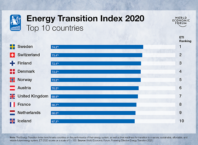Table of Contents

The report “COVID-19: Potential impact on the world’s poorest people: A WFP analysis of the economic and food security implications of the pandemic”, was published by the United Nations World Food Programme(UN WFP).
Insights of the Food Supply Chain
The report shows that the global food market is well supplied and the prices for these items are generally low.
It shows that the disruptions are so far minimal and the markets are relatively stable.
It shows that 1% fall in growth of the world economy would push an additional 14 million people into poverty.
The report shows that the countries highly dependent on the tourism industry for generating revenues are likely to face challenges.
It shows that if big importers lose confidence in the reliable supply of basic food commodities which could lead to panic buying and drive prices up.
Challenges Faced
Logistic issue- The spread of COVID-19 pandemic has forced the countries to enforce a ban on cross-border movements, sealing of borders which has disrupted the logistic sector and affected the supply of food items.
Food Production issue- The COVID-19 has resulted in declined food production over the globe and the farmers are facing challenges such as shortage of staff, fertilizers etc.
Behavioural Change issue- A change in behaviour over food security by importers could lead to panic buying, global food supply crisis resulting in driving prices up. This could have devastating impacts on low-income countries.
Suggested Solutions
There is an urgent requirement to monitor food prices in the global market and to transfer regular information to all so that it could help the government around the globe to frame suitable policies and avert public panic.
Logistic preparedness by:
- Seeking sourcing alternatives from different countries.
- Procuring and pre-positioning inventory, in case any disruption is caused due to border closures, quarantine or unavailability of supplies.
- Securing land and sea transportation of humanitarian cargos ahead of time.
- Preparing for an increase of cost and lead-time throughout the supply chain.
Alternative responses such as cash-based transfers need to be taken into consideration in places where food insecurity is caused by restricted access rather than lack of availability of food.



